Legal Psychedelic Retreats – What They Are & Where to Find Them
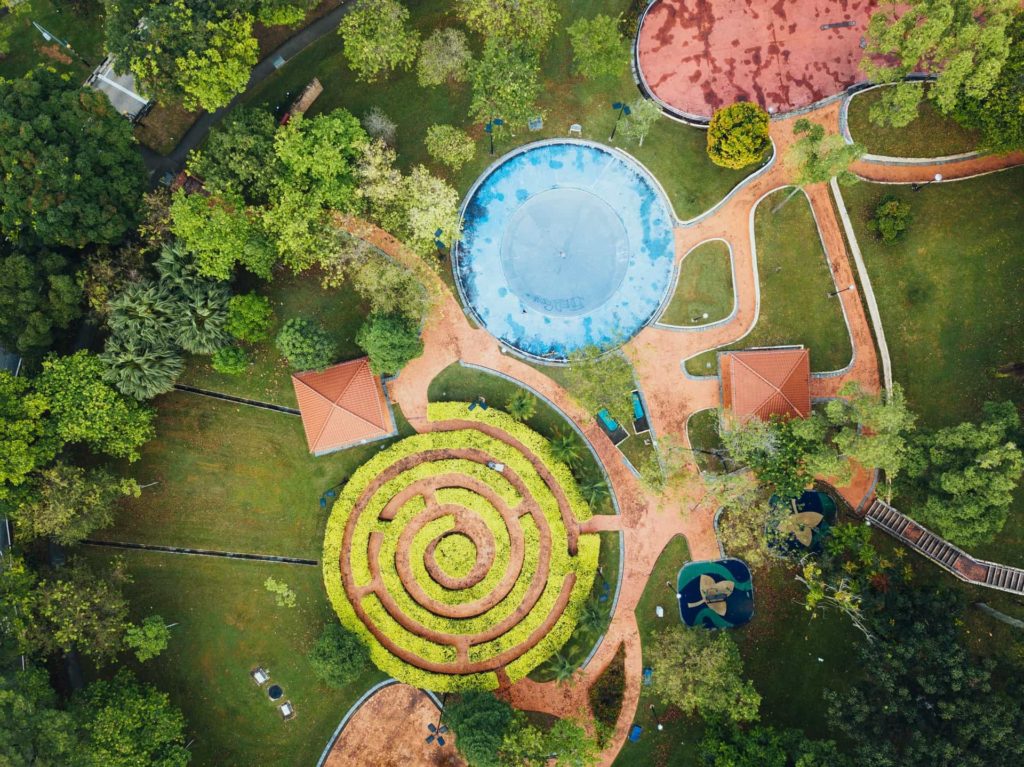
Psychedelic retreat centers offering spiritual journeys facilitated by plant medicines have become numerous over the past few decades. Attracted by the prospect of personal advancement and psychological healing, scores of people have been flocking to centers hosting guided psychedelic retreats in countries where certain psychedelics are “not illegal” (more on this below).
Psychedelic ceremonies are sought out by those in need of healing trauma, anxiety, or depression; relieving the general pressures of life; recovering from stress, burnout or various kinds of addiction; discovering more about their souls; and incorporating more mindfulness into their lives.
These retreats offer an opportunity for immersion into a regime of tranquility and self-actualization fueled by the spiritual insight gained in psychedelic journeys.
The Legality Issue of Psychedelic Retreats
For obvious reasons, retreat centers that openly market guided psychedelic therapy or shamanic ceremonies tend to be found in countries where the use of psychotropic plants is “not illegal.” What does this mean?
“Not illegal” can refer to one of three circumstances:
- Legal – possession and distribution is allowed by law, and typically when certain conditions are fulfilled, such as membership in a recognized church, or indigenous heritage. In some countries, such as the case with ayahuasca in Peru, commercial distribution might also be allowed.
- Decriminalized – possession for personal use is not subject to prosecution. Transportation might carry low penalties (such as fines) or, in some cases, if doses are under the limits set by the law, no penalties. However distribution for commercial purposes ventures into the realm of traffic and may be punishable by law.
- Unregulated – the laws on specific substances were not established or are not enforced. You can also think of this as a gray or “non-illegal” area, which is wide and blurry in the world of psychedelic retreats.
Roughly speaking, this means that centers offering plant-based psychedelics can more easily be found in select countries in Central America and the Caribbean islands, and most of South America.
Other countries also host various psychedelic ceremonies and retreats, but, without licenced retreat centers or with potential legal issues at stake, these events are not always available and are most often organized in an underground manner.
As they are run outside of the countries of origin of the medicine, their ethical standards and authenticity may be at question, too. This is why you should always do research beforehand to make sure the event you’re interested in joining is organized by reputable facilitators in a professional manner, and that it carries no legal risks.
Disclaimers:
We do not condone engaging in illegal activities. If you are planning a psychedelic retreat, we urge you to research the current local laws and their enforcement, as these conditions may change over time. In this article you can find recommendations for legal and non-illegal retreat centers (operating with no known consequences in countries where substances in question are unregulated). You should always make sure to be fully informed of any risks involved, and to obey the law.
Aside from a few retreat centers that will be explicitly indicated, the below list comprises locales that have NOT been personally vetted by the EntheoNation team, but have received significant positive reviews on online retreat search portals. You should treat them as recommendations to consider in the process of finding a center that resonates with your retreat intentions.
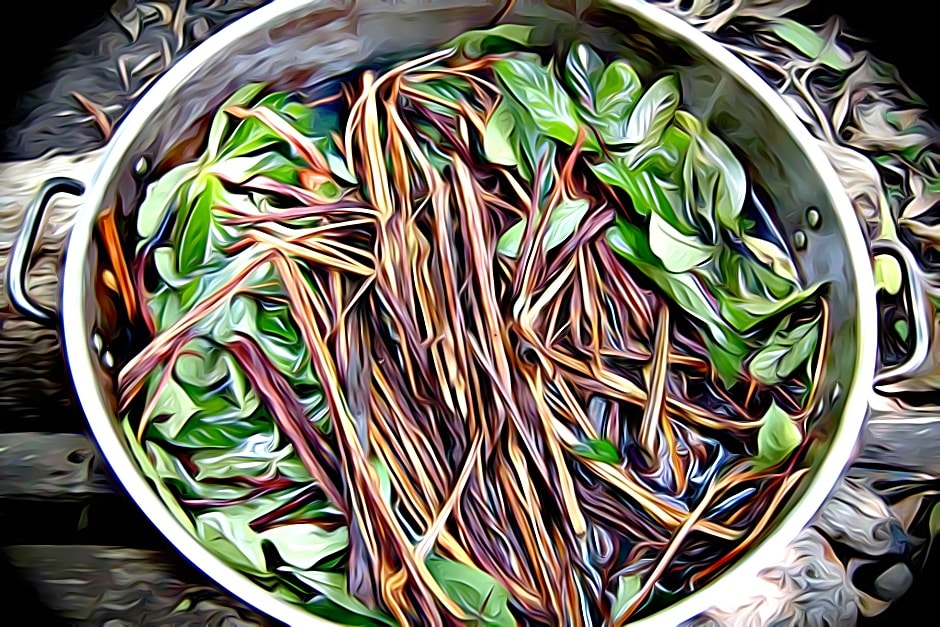
Ayahuasca Retreats
Retreats with the sacred Amazonian tea ayahuasca may be the best known of all psychedelic retreats. This powerful brew has, for the past few decades, been contributing to a massive development of the tourism industry in South American countries, especially Peru, Colombia, and Ecuador, and Central American countries, mainly Costa Rica and Mexico.
If you’d like to learn more about the effects of ayahuasca and whether it may be the right choice for you, head to our ayahuasca guide.
South America
The South American countries with ayahuasca retreat centers are the ones belonging to the Amazon basin, where the brew has been used by indigenous peoples traditionally and ritually for generations, and possibly since ancient times. The shamanic context of its use is centered around healing, divination, attaining visions, and establishing contact with the spirit world. As a sacramental drink in these cultures, its preparation and consumption is mostly permitted in these countries where the plants grow natively, with shamanic options abound.
Legal ayahuasca retreats in South America can be found in Peru, Colombia, Ecuador, Bolivia, and Brazil.
Peru has an extremely well-developed ayahuasca industry, with the tourism boom concentrated in large part around Iquitos. This once sleepy town on the bank of the Amazon river is now the most active global hotspot for ayahuasca sessions.
A few notable retreat centers in the Iquitos district are:
- Arkana
- ASHA
- Caya Shobo
- Dreamglade
- Ecological Jungle Trips
- El Paraíso de la Medicina
- Kapitari
- La Luna del Amazonas
- Mamaycuna
- Oni Shobo
- Otorongo
- Planta Divina
- Rainforest Healing Center
- Temple of the Way of Light
- Yosi Ocha
The second hub in Peru can be found in the southern part of the country, known as the Sacred Valley. This area is characteristic for its abundance of mestizo (mixed) and foreign (gringo) shamans. Around Cusco (the main city in this district) you can consider a retreat with:
- Arkana (second location)
- Ayahuasca Prajna
- Ayaruna
- Etnikas
- Munay Medicine
- Nuna Ayni
- Sapan Inka
- Shamanic Vida
- Spirit Plant Journeys
- Tree of Light
- Willka Hampi
In between the two lies Pucallpa, where you can find:
A bit to the northeast, in Tarapoto, you can visit:
- The Garden of Peace
- Katari
- Lotus Vine Journeys (fusion of the Amazonian plant medicines and Eastern Buddhist practices)
- Sinchi Runa
- Taita Inti
- Tambo Ilusion
Colombia has also seen its fair share of ayahuasca tourism development, ever since the likes of Terence and Dennis McKenna and Richard Schultes pioneered the exploration into indigenous use of plant medicines. However, the majority of the ayahuasca activity in this country doesn’t take place in large retreat centers, and is to be better gleaned from within. Some of the reputable retreat centers that can be reviewed online include:
- Origen Sagrada in Barbosa
- Ayahuasca Healing Center close to Bogotá
- Doa Retreat, Eagle Condor Alliance, and Psychotravels around Medellín
- El Mundo Magico in Putumayo (also operates in Peru)
Ecuador has its small, but fair share of retreat centers both big and small. The most well-known ones are:
- Alma in Baños
- Gaia Sagrada and Ayni just outside of Cuenca
- Casa del Sol near Loja
- Vikara and Nina Wasi in Olón
- Feather Crown in Pastaza
- Chacapita in Vilcabamba
Aside from retreat centers, shamans in local communities are abound, and quite easy to find or get directed to in smaller towns nestled in the Amazon region.
Bolivia isn’t as well-endowed with large ayahuasca retreat centers as the other three countries, but smaller-scale ceremonies are easily found on the spot. Pisatahua in Beni is the best option available for reviewing remotely, and the most well-known center in this country.
Administering ayahuasca is officially illegal in Argentina (with occasional strict enforcement), but there are ceremonies being held by retreat centers and private facilitators and shamans. We cannot recommend any, as per the potential legal risks involved.
Uruguay is a small country in which ayahuasca is not regulated. As per our knowledge, there are no official retreat centers there.
Brazil, on the other hand, is a massive country with its own syncretic religious movements based around the ritual consumption of ayahuasca, which they call “Daime” or “hoasca”. These are: Santo Daime, União do Vegetal, and Barquinha. The Santo Daime and UDV churches are also active in North America, where, after inevitable legal disputes in both the US and Canada, they were eventually granted the rights to import and use ayahuasca in a sacramental context.
These religions may accept new members, but it’s far from a drop-in-and-participate kind of situation. Interested parties need to apply and meet with one of the church leaders in order to be vetted and officially initiated.
Their ceremonies are also unlike those held by retreat centers. They can last up to 16 hours, be intensely spiritual and draw heavily upon religious concepts; Christianity makes up the core of beliefs of these movements. Ceremonies also often may include singing hymns and dancing, and they are centered around a strong communal spirit. So, if you feel like this doesn’t correspond to how you envision an ayahuasca retreat, it’s best to look elsewhere.
As for retreats in actual retreat centers, they are to be found within Brazil, but mostly by word of mouth. A few notable ayahuasca retreat centers to check out online include:
- Casa Chama Trina in Bahia
- Spirit Vine in Itacaré
- Terra Maya and Aldeia Akasha around Rio de Janeiro
- Terra Brasilis and AyAwakening in São Paulo
Central America
The ayahuasca scene of Central America is not nearly as developed as that of South America, but one country in the region is an exception to this rule.
Costa Rica is home to an abundance of retreat centers, not only for ayahuasca, but for other psychedelics as well. As for ayahuasca retreats, you can expect a standard of excellence in terms of amenities, facilitators (mostly foreign, ie not indigenous Amazonian peoples), and overall service. The centers are usually large, modern, and comfortable, and retreats often include various activities that foster mindfulness and aid personal transformation. Focus is on community and insight integration.
The status of ayahuasca in Costa Rica is unregulated, and there have been no legal consequences to those participating in retreats there. The centers are sometimes required to use non-explicit verbiage such as “plant medicine” instead of using the actual name of the psychedelic in order to comply with formalities. If ayahuasca ceremonies in lush tropical beach settings sound appealing to you, Costa Rica is the destination to consider.
A few of the best retreat centers are:
- Nada Brahma in Alajuela
- Soltara in Gigante – personally vetted by the EntheoNation team.
- Mundo Gente Medicina in Puriscal
- Ayahuasca Costa Rica in San Isidro (combined retreats with yoga)
- Sound of Light Circle near San Jose
- New Life Ayahuasca in San Ramon
You can also opt for a deluxe retreat in varying locations with 1heart, a psychedelic retreat project aimed at developing leadership potential in entrepreneurs – also personally vetted by the EntheoNation team.
Ayahuasca in Mexico is in a sort of a legal vacuum as well, with a limited number of retreat centers operating freely. The most well known and recommended one is Bluestone Ayahuasca in Cancún.
Europe
Ayahuasca is generally illegal in Europe. However, due to the fact that its presence in countries of the Old World is almost non-existent in comparison to that of other illicit substances, most governments have never had a judicial case involving ayahuasca. For this reason, it can be said that there is a general lack of awareness of what the brew actually is, and numerous indigenous and mestizo shamans (of mixed descent) travel with the ingredients and share the medicine throughout the continent, mostly without consequences. Word about the ceremonies they organize is usually spread discreetly, on a mouth-to-mouth or email list basis, so connections need to be made in order to learn about these events.
Keep in mind that these ceremonies are illegal, as DMT is a scheduled substance throughout Europe. Although enforcement may vary, and consequences may often not exceed confiscation, we strongly advise against joining any of them.
A few European countries have notable, yet unclear relations toward ayahuasca, with retreat centers and ceremonies being relatively easy to come by. These countries are: Italy, Spain, and Portugal.
Spain is home to more than a few sacred plant retreat organizers, but it’s also home to the highest number of legal incidents involving ayahuasca in recent years. As Spain is a decentralised state, each region has its own policies and its own drug commissioners. So, although the 2019 World Ayahuasca Conference took place in Girona, and even though there is no federal statute specifically outlawing ayahuasca, ceremony raids in certain places are alarmingly common. They may not end in criminal prosecution, but we cannot recommend joining ayahuasca events with this risk of interruption and trauma.
Italy has an interesting and confused relationship with ayahuasca. An important legal case lasting from 2004 to 2006 and involving Santo Daime members ended up with an acquittal, causing all future cases to be viewed through the same proverbial legal prism (on account of some judgments being issued by the Italian Supreme Court). Ayahuasca ceremonies in Italy are thus not considered a criminal offense, but people continue to have their ayahuasca seized and new cases are consistently initiated. The brew is somewhere between being legal and illegal, with existent enforcement; due to this, we cannot endorse participating in ceremonies.
As the most drug-progressive country of the continent, quite a few ayahuasca centers/organizations are to be found in Portugal. According to ICEERS, there has been only one arrest involving ayahuasca, and it never reached the court. Although DMT is a regulated substance in Portugal’s national drug law, traditional plant mixtures appear to be viewed more leniently. This is why Portugal remains the major ayahuasca destination in Europe and as close to the unregulated status as Europe gets. A couple of prominent retreat centers are APL Journeys, Onanya Joni, and The Sacred Voyage.
A special mention here goes to the Netherlands. The Dutch had a lenient stance toward ayahuasca up until 2018, when it was officially made illegal. In October 2019, the Dutch Supreme Court ruled that this restriction will apply to the Santo Daime church as well. Retreats are still being organized, with centers publicizing them openly. However, be advised that joining them is currently a legal risk.
If you’d like to read more about ayahuasca’s complicated history in the Netherlands, please refer to our in-depth article on that topic.
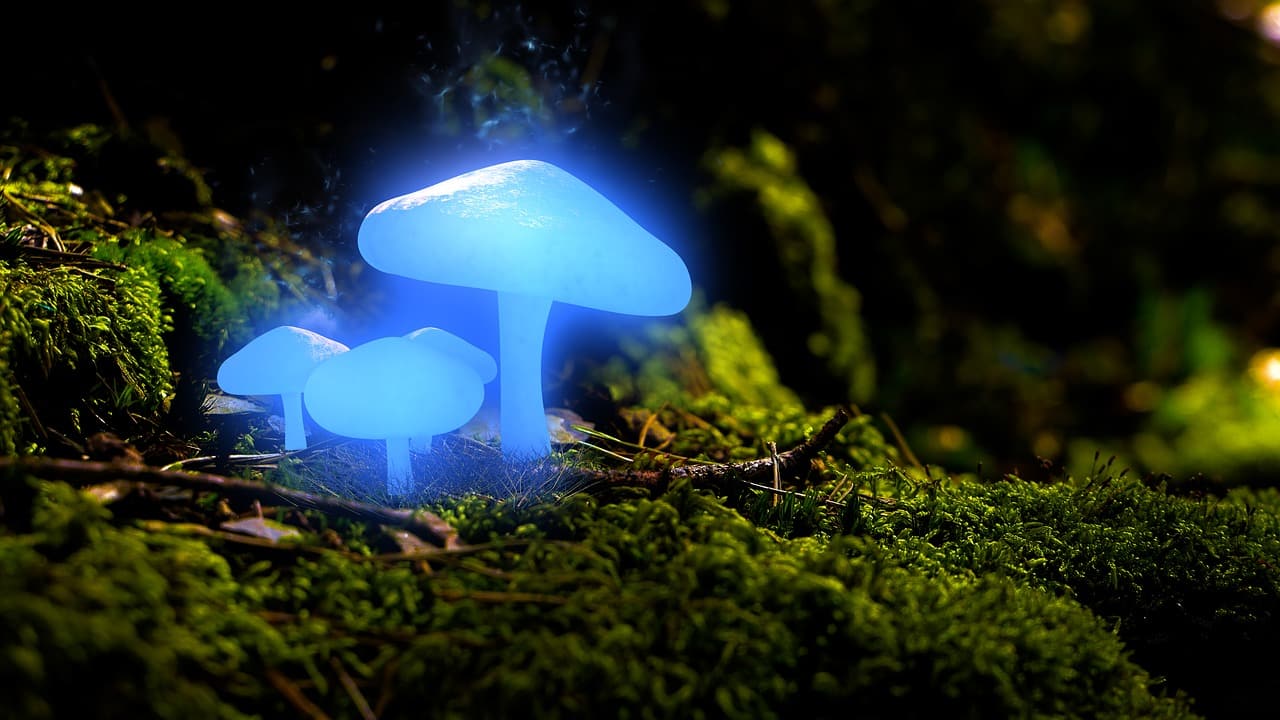
Magic Mushroom Retreats
If an ayahuasca retreat sounds a bit too daunting, you may want to consider a more gentle approach to personal transformation. Magic mushrooms, also known as “psilocybin mushrooms,” and their subterranean counterparts psilocybin truffles are quite potent spiritual tools with an ancient history of ritual use. Psilocin, the active compound into which psilocybin breaks down in our digestive systems, is actually molecularly quite similar to the DMT molecule which induces the otherworldly visions ayahuasca is well-known for.
Psychedelic experiences with magic mushrooms and ayahuasca have some commonalities, in that they can both be quite visual (although the visions tend to be more elaborate and otherworldly with ayahuasca), emotional, and introspective. Moderate doses of magic mushrooms, however, are usually less overwhelming and don’t come with the intense body load that ayahuasca can impose on its drinker. They can thus be more comfortable to manage and easier to integrate.
If you’re considering a psilocybin retreat, feel free to learn more about the substance in our magic mushroom guide. If you’re interested in where you can consume psilocybin as legally as possible and not necessarily in a ceremonial context, head to our full guide on that topic.
Psilocybin retreat centers can be found in:
The Netherlands – the Dutch have outlawed commercial distribution of magic mushrooms in 2008. However, due to a legal loophole, the status of psilocybin truffles remained uncompromised, leading up to them seamlessly replacing their predecessors on shelves of smart shops throughout Amsterdam. Nowadays, truffle retreats are also being organized, and centers such as London Psychedelic Society, Synthesis and Inner-Journey in Amsterdam hold them in well-equipped, controlled, and supportive environments.
Mexico – Psilocybin is officially illegal, but the law is mostly disregarded in practice. Magic mushrooms have a long history of sacramental use by indigenous peoples of Central America. A small region in the northern part of Oaxaca, and especially the town of Huautla de Jimenez, is well-known for using psilocybin in healing rituals. Mushroom ceremonies are easy to come by in this area. On the other hand, upscale retreat centers such as The Buena Vida nearby Playa del Carmen also exist, and seem to be allowed to operate due to collaborating with indigenous healers.
Jamaica – This country doesn’t have psilocybin regulated, and mushroom retreat tourism is on the rise. A couple of well-known retreat centers include Atman in Montego Bay and Mycomeditations at Treasure Beach.
Ecuador – A rare (for South America) magic mushroom retreat can be found in this country, held at Casa del Sol in Vilcabamba. Ecuador has no official psilocybin regulations.
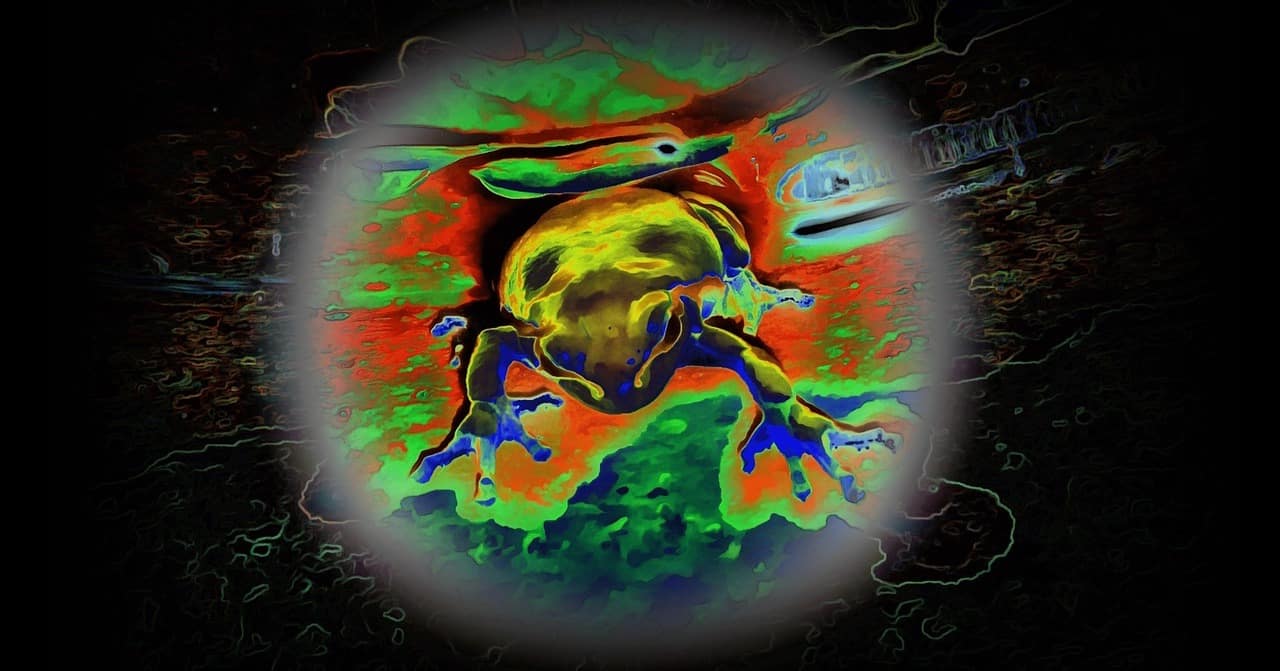
5-MeO-DMT Retreats
5-MeO-DMT is an exquisitely potent psychedelic molecule that naturally occurs in the venom of the Bufo alvarius toad. It’s usually vaporized or smoked and induces intense mystical experiences that can catalyze profound spiritual growth. It’s also been found to reduce symptoms of anxiety and depression in users. Possession and use of this compound is illegal in most of the world, exceptions being Mexico, Canada, Belgium, and most of South America, where it’s unregulated. Beware of unethical or abusive facilitators, who often administer 5-MeO-DMT without adequate care.
If you would like to learn more about 5-MeO-DMT and its effects, head to our full guide for detailed information.
The substance is not common, and neither are retreats centered around it. A few options to check out online would be Arkana in Peru, and Terra Incognita and Psychedelic Journeys in Mexico.

Iboga Retreats
The iboga plants, namely Tabernanthe iboga and other species of perennial shrubs of the Apocynaceae family, house the extremely potent psychoactive compound ibogaine. This alkaloid induces a long-lasting trance-like state that brings the taker into profound confrontation with their suppressed fears and (self-)destructive thought patterns and habits. Iboga is often referred to as “The Truth,” and its use is primarily for resolving heavy cases of substance addiction. Iboga ceremonies are not advised to a general audience, as it’s also notorious for causing fatal heart attacks in vulnerable people.
If you’re curious to know more about it, you’re welcome to read up on what the effects of iboga are, how to use it for addiction treatment, and how to prepare for an iboga ceremony.
Authentic iboga ceremonies can be experienced in Gabon, Cameroon, and the Republic of Congo, where this sacred plant is used in traditional rituals. Otherwise, iboga addiction treatment options are numerous in countries where its clinical use is allowed or where ibogaine is unregulated.
Some of the options include:
- Crossroads Treatment Center in the Bahamas
- Free Spirit Network in Brazil
- Sacred Soul Therapy House and Liberty Root Ibogaine Therapy in Vancouver, Canada
- Clear Sky Recovery, Experience Treatment Center, Rite of Passage, Iboga Root Home, Holistic Hope House, Oka Center, and New Roots in Mexico
- Clear Sky Recovery in New Zealand
- Envision Recovery, Awaken Your Soul, Iboga Healing, Global Nurture Project, and Iboga Wellness Center in Costa Rica
- Tabula Rasa, Iboga Healing, and Iboga Tree Healing House in Portugal.
Bear in mind that most of these centers are operating in a grey, although not illegal area.
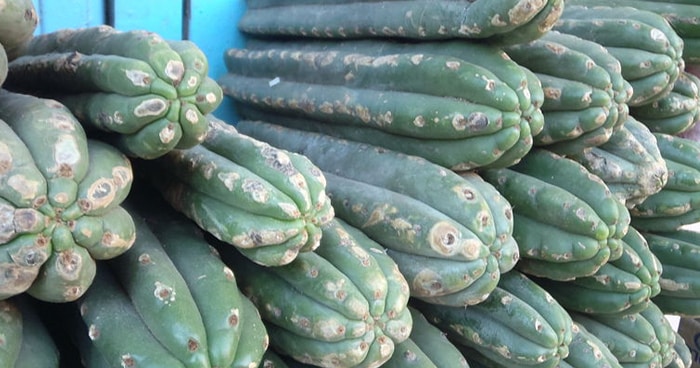
San Pedro Retreats
San Pedro, also known as Huachuma, is a psychedelic cactus growing in the dry highlands of the South American Andes. Consuming it induces feelings of euphoria; transcendental resonance with, and awareness of objects, people, the world, and the universe; spiritual connection with ancestors; and profound empathy. In general, it catalyzes deep emotional cleansing and healing. Huachuma, too, has an ancient history of ritualistic use.
San Pedro isn’t known as an overpowering psychedelic, and its effects are generally airy and positive. It is usually taken during the day, and is considered suitable even for psychedelic novices. A fair share of ayahuasca retreats include San Pedro as an optional experience to help prepare for the brew and/or integrate ayahuasca insights.
Growing the cactus for gardening/ornamental purposes is mostly legal, but growing it for recreational consumption is subject to mescaline regulation, meaning that it’s illegal in countries that don’t have a history of its ritualistic use. Legal San Pedro retreat centers are thus found only in South American countries.
To find out more about San Pedro, its healing uses and effects, read our full guide.
Some retreat centers that offer San Pedro ceremonies include:
- El Mundo Magico and Eagle Condor Alliance in Colombia
- Alma, Ayni, Casa del Sol, Chacapita, Gaia Sagrada, Nina Wasi, San Pedro Workshops, and Vikara in Ecuador
- Arkana, Ayahuasca Prajna, Ayaruna, El Mundo Magico, El Paraíso de la Medicina, Hummingbird, Munay Medicine, Psychonauta Foundation, Sapan Inka, Sinchi Runa, Shamanic Vida, Spirit Plant Journeys, The WAY Inn, Willka Hampi, and Yosi Ocha in Peru.
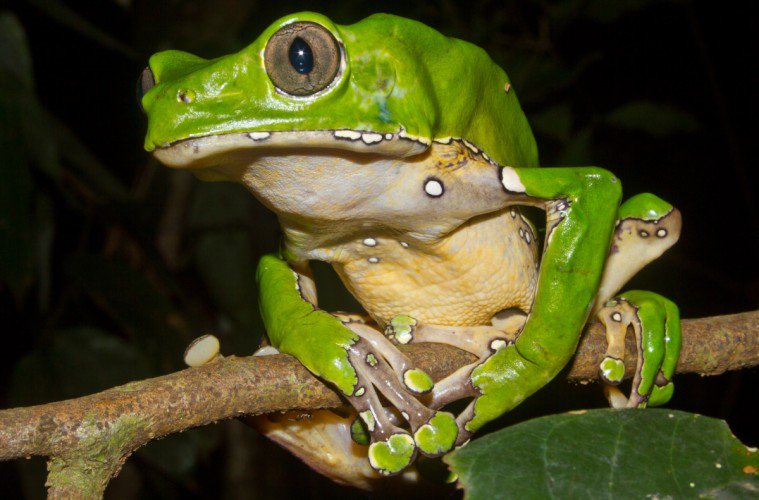
Kambo Retreats
Kambo is a traditional toad venom medicine that’s applied to small holes made in the skin of the receiver in order to induce intense purging and prepare the body for a coming ayahuasca session, or additionally cleanse it from the previous one. It’s taken on separate occasions, never at the same time with the brew, and its traditional use began independently of the use of ayahuasca.
Although it doesn’t alter consciousness in the same way psychedelics and entheogens do, this venomous secretion of Phyllomedusa bicolor is incredibly powerful and effective, and it deserves a special mention in this list.
To learn more about the use of kambo in indigenous practice, read our guide on this potent medicine.
Kambo is usually not offered in a standalone retreat context. Rather, this medicine can be found in almost all retreat centers that serve ayahuasca, as an optional add-on to the healing process.
Final Word on Psychedelic Retreats
Psychedelic retreats are becoming abundant throughout the world. They offer a guided, immersive pathway to self-healing for those burdened by stress, inhibited by trauma, stifled by anxiety, defeated by depression, or just plain stuck in the daily grind. Plant medicine retreats can offer a new avenue to people who are unable to implement or benefit from typical mindfulness practices.
We hope this article provides enough information to start you off or further direct you on your journey to finding your ideal psychedelic getaway.
Remember to always double-check the local legal regulations on any psychedelic retreat or ceremony you’re interested in attending, and to act in accordance with the law. In addition, make sure to carefully vet your chosen psychedelic service provider beforehand, and to enter any ceremony fully informed of their integrity, as well as of their potential health risks.
For resources that will help you choose a safe and effective plant medicine ceremony, check out our Spiritual Evolution with Sacred Plant Medicines course!

Thank you.